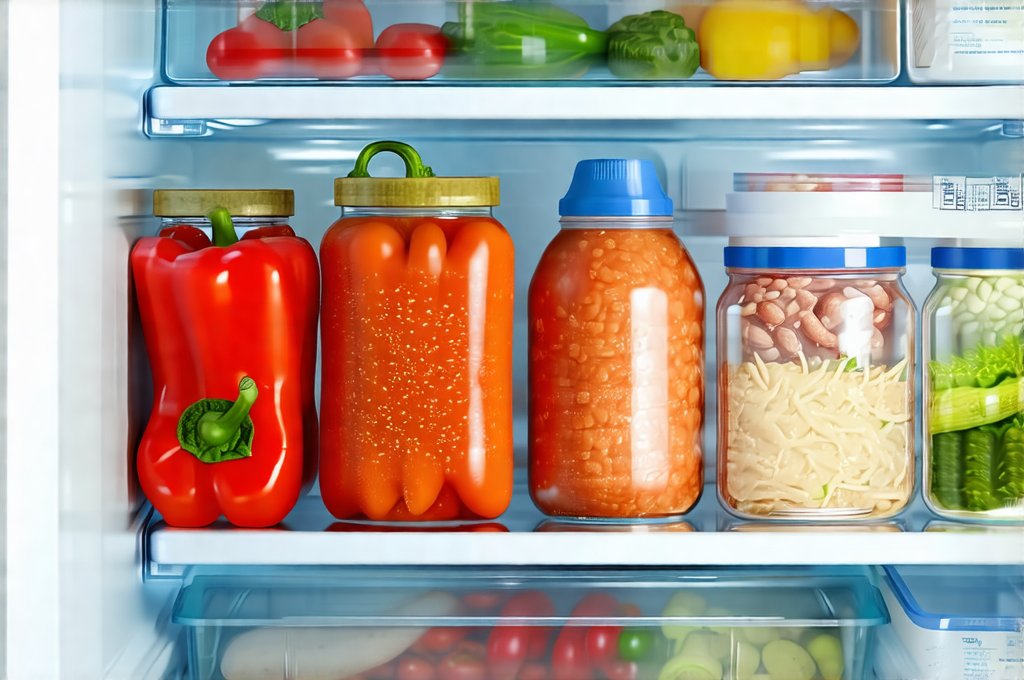A healthy digestive system is often an unsung hero of overall wellbeing. We tend to only notice it when something goes wrong – bloating, discomfort, irregularity, all unwelcome reminders that this intricate network isn’t functioning optimally. But proactively supporting your digestion doesn’t require drastic changes or complicated routines. In fact, a simple strategy involves keeping certain foods readily available in your fridge; ingredients that naturally aid the digestive process and can be easily incorporated into daily meals. This is about nourishing your gut, promoting regularity, and ultimately feeling more comfortable and energized.
The modern diet, often filled with processed foods and lacking essential nutrients, can put significant strain on our digestive systems. Many people experience some level of digestive distress without even realizing the extent to which their food choices contribute. Building a ‘digestive support fridge’ – one stocked with ingredients that are gentle on the gut and actively promote healthy digestion – is an investment in long-term health. It’s about having options readily available when you need them, making mindful eating easier, and proactively addressing potential issues before they escalate into more serious problems. This isn’t a quick fix; it’s a sustainable lifestyle approach centered around nourishing your body from the inside out.
Fermented Foods: The Gut Microbiome Boosters
Fermented foods are arguably the most powerful allies in digestive health. They’re teeming with probiotics, beneficial bacteria that live in our gut and play a critical role in everything from nutrient absorption to immune function. A healthy gut microbiome – the collective community of microorganisms residing in your digestive tract – is essential for optimal digestion, reducing inflammation, and even influencing mental wellbeing. Unlike probiotics found in supplement form, those derived from food often contain a wider variety of strains and are naturally accompanied by prebiotics (fibers that feed the good bacteria).
Keeping fermented foods on hand ensures you can easily incorporate these gut-friendly powerhouses into your diet. Options readily available and fridge-stable include: – Kefir, a tangy drink similar to yogurt but with a thinner consistency. It contains a diverse range of probiotics. – Sauerkraut (unpasteurized), traditionally made from fermented cabbage. Look for varieties without added vinegar or sugar. – Kimchi, a Korean staple made from fermented vegetables, typically napa cabbage and radishes, known for its spicy flavor and probiotic content. – Yogurt (plain, unsweetened) with live and active cultures. Greek yogurt is an excellent choice due to its higher protein content.
Integrating these foods doesn’t need to be complicated. A spoonful of kefir in your smoothie, a side of sauerkraut with your lunch, or a dollop of plain yogurt with berries are all simple ways to reap the benefits. It’s important to start slowly, as introducing too many fermented foods at once can sometimes lead to temporary digestive upset. Listen to your body and gradually increase your intake over time. Remember that pasteurization kills the beneficial bacteria, so always choose unpasteurized versions when possible (and ensure proper storage). Understanding fermented foods is key to a healthy gut.
Soothing Fruits for Sensitive Systems
Certain fruits are naturally easier on the digestive system than others, making them excellent additions to a ‘digestive support fridge’. While all fruits offer valuable nutrients and fiber, some contain compounds that can exacerbate digestive issues in sensitive individuals. Prioritizing lower-FODMAP options – fermentable oligosaccharides, disaccharides, monosaccharides, and polyols – is often helpful for those prone to bloating or gas.
Bananas are a classic choice, particularly ripe ones as they’re easier to digest. Blueberries are another excellent option; they’re rich in antioxidants and relatively gentle on the gut. Applesauce (unsweetened) can be soothing, but whole apples may be more difficult for some to tolerate. A small amount of papaya is known to contain papain, an enzyme that aids protein digestion. However, it’s essential to remember everyone’s tolerance differs.
When introducing new fruits, observe how your body responds. Start with smaller portions and gradually increase intake if tolerated well. Combining these fruits with a source of healthy fat (like almond butter or yogurt) can further slow down digestion and prevent rapid spikes in blood sugar. Consider blending them into smoothies for easier consumption and absorption. The goal is to choose options that provide nourishment without causing discomfort. If you struggle with digestive issues, consider learning about pH balance.
Hydrating Vegetables: Fiber & Water Balance
Staying adequately hydrated is paramount for digestive health, as water helps move food through the digestive tract and prevents constipation. Many vegetables are naturally high in water content, making them ideal choices for a digestive-support fridge. Beyond hydration, these vegetables also provide essential fiber, which adds bulk to stool and promotes regularity.
Cucumber is exceptionally hydrating and mild, making it easy on sensitive stomachs. Leafy greens like spinach and romaine lettuce offer both hydration and fiber. Carrots, while slightly higher in FODMAPs for some, are a good source of fiber and vitamins. Celery contains diallyl methoxide, which may help reduce bloating. A simple salad with these ingredients is not only refreshing but also supports healthy digestion.
Preparing vegetables ahead of time—washing, chopping, and storing them in airtight containers—makes it easier to grab a quick snack or add them to meals. Consider lightly steaming or roasting some vegetables for improved digestibility if raw options cause discomfort. Adding herbs like ginger or mint can further aid digestion; ginger is known for its anti-inflammatory properties, while mint can help relax the digestive muscles. Many find relief from stress related reflux by incorporating these strategies.
The key takeaway here isn’t about restrictive dieting but rather intentional food choices. By consciously stocking your fridge with these digestive support foods – fermented options to bolster gut health, soothing fruits for gentle nourishment, and hydrating vegetables to maintain optimal function — you’re proactively investing in a happier, healthier digestive system. This approach is sustainable, adaptable to individual needs, and ultimately empowers you to take control of your wellbeing from the inside out. Consider low-acid sauces for a balanced diet as well. For some, digestive enzymes can offer additional support. And don’t underestimate the power of bitter foods.


















